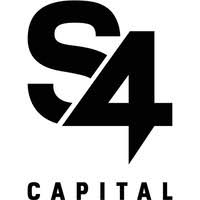Paystack has suspended its co-founder and Chief Technology Officer, Ezra Olubi, after allegations of sexual misconduct involving a subordinate surfaced online. The company confirmed the suspension and announced the start of a formal investigation. As the controversy escalated, Olubi deactivated his X account, while screenshots and archived posts continued to circulate widely.
Multiple media outlets have reported on old tweets attributed to Olubi from 2009 to 2013. Although the images have spread across several channels, most reputable publications have urged caution until independent experts verify them. The posts form part of a broad public conversation, but full confirmation and context remain the responsibility of investigators, not social media speculation.
In its statement, Paystack acknowledged the allegations, confirmed Olubi’s suspension, and announced the launch of a formal investigation. The company added that it would not release additional details to protect the confidentiality of all parties and maintain the integrity of the process.
Why this matters for Paystack’s reputation
Paystack represents far more than a payments product. After becoming one of Nigeria’s most celebrated tech success stories and securing a major acquisition by Stripe, the company has carried symbolic weight for the African startup ecosystem. Its founders became public-facing assets, and that visibility strengthened the brand—until now, when it increases reputational risk.
When a founder’s public image becomes inseparable from the company, their personal conduct can quickly trigger institutional fallout. Investors, partners, employees, and customers often respond not only to facts but to perception. As a result, Paystack now faces a sensitive period of scrutiny that demands disciplined crisis management.
Short- and medium-term impact
In the immediate term, Paystack must manage internal anxiety, heightened media interest, and questions from partners and clients. Stakeholders will expect clarity, stability, and a commitment to due process.
Over the medium term, the outcome of the investigation will shape Paystack’s next chapter. A clean outcome may restore calm, but verified misconduct could trigger leadership changes, governance reforms, or legal consequences. The company may face ongoing reputational drag or, if handled well, emerge as a model of accountability. How Paystack navigates this investigation will strongly influence its long-term credibility.
What should Paystack do now?
Opinions suggest Paystack now needs to take several decisive steps to stabilize the situation and protect its credibility. The company should appoint a reputable external lawyer or HR expert to conduct the investigation and publicly identify who is leading the process, since that transparency will immediately reduce speculation. It must also communicate with clarity and consistency, offering structured updates that respect confidentiality without leaving a vacuum for rumours to flourish.
Internally, the company should reinforce its safety systems by activating confidential reporting channels, providing counselling support, and guaranteeing that whistleblowers will not face retaliation. Protecting employees is both an ethical obligation and a practical safeguard. At the same time, Paystack’s leadership must revisit its governance framework, reviewing policies that govern workplace conduct, founder behavior, social media use, escalation protocols, and organizational transparency to prevent similar vulnerabilities in future.
Finally, the company should engage major clients, partners, and Stripe directly, offering private and proactive briefings that address concerns about operational or reputational risk. Robust action on all these fronts will give Paystack the best chance of containing the crisis and rebuilding trust.
Paystack must shift the narrative from personalities to institutional strength. The immediate goal is to reinforce confidence in product reliability, data security, and operational integrity. Superficial PR will not satisfy investors or the public; meaningful governance reform will.
Risk of regulatory or legal exposure
So far, no major outlet has reported any formal civil or criminal complaint. However, if investigators confirm workplace misconduct, Paystack could face regulatory scrutiny or legal action tied to HR compliance, workplace safety, or contractual obligations. The company should prepare for these possibilities as a matter of prudence.
How Stripe may react
Acquiring companies typically worry about brand damage, legal risk, and customer churn. Stripe will expect Paystack to manage this crisis quickly and independently. If the response falters or drags on, Stripe may step in to enforce stronger governance, leadership adjustments, or structural oversight.
Bottom line
How Paystack handles this crisis, openly, honestly, and with rigorous due process—will matter more than how the public uproar evolves. A credible investigation, genuine employee protection, and transparent governance reforms will determine whether the company regains trust.
Founders build rockets, but governance keeps them in orbit. This moment reminds the entire tech ecosystem that strength lies not only in innovation, but in disciplined, accountable leadership.
ALSO WATCH MARKETING EDGE ONTV







Comment
No comments found.